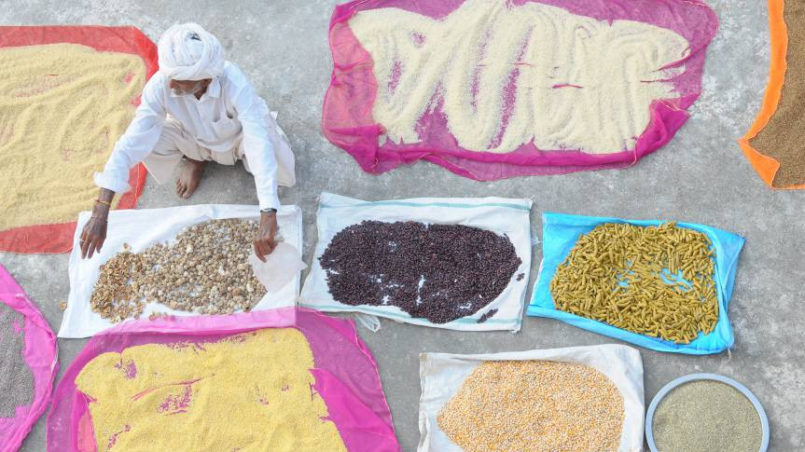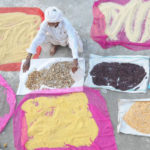Ayurveda helps me to stay on track

Ayurveda, as translated from Sanskrit, means the “science of life”. It is the ancient Indian health system, which is deeply rooted in the Indian culture. Its principle is built on the knowledge that the right diet and behaviour, in harmony with the elements of medicine, have a healing effect on people. During my trip through Asia, I integrated Ayurveda as a pillar for me, which helps me to stay in balance and harmony with myself, despite the instability of being out and about.
Ayurveda has always fascinated me. Especially, of course, since I explored the world of yoga more intensely during my India trip.
as directly correlated to each other, mutually influencing each other. A healthy mind lives in a healthy body. Or, to put it another way: a healthy body needs a healthy mind.
In Sanskrit, “Ayu” means science and “Veda” means life, therefore “the science of life”. It not only offers a wide range of herbs, massage therapies and other treatment methods but, in particular, the three-dosha theory.
“Three-dosha” describes three different constitutions, or rather temperaments, which form the starting point of the Ayurvedic teachings: vata/ air, pitta/ fire and kapha/earth.
A healthy, totally balanced person would combine these three temperaments and elements (doshas) to the same extent. But this so-called “three-dosha balanced” person exists in our world only very rarely. Most of us have one or two key elements and a lack of another one. For example, those who are dominated by the vata dosha, the element air, are therefore physically and mentally rather easy and unsteady and, according to Ayurveda, need an appropriately balanced diet.
In many cases we are defined by two doshas, which, for example, implies combinations of vata and pitta or pitta and kapha. Regarding diet, account should be taken of the dosha which has lost its balance.
Since I started my one-month Ayurveda-course with a doctor of my choice last year, again and again I have tried and experimented with my dosha constitution. What kind of food is best suited to my vata/pitta dosha? What should I exclude, and what should I include? Ayurveda and a trained doctor or therapist can provide detailed instructions. But ultimately, these should rather be regarded as a recommendation, because:
People who travel are often very vulnerable as regards an out-of-balance vata dosha. For travelling is like the wind: unsteady, always on the move and often inspired into all directions. Of course the external environment and also our behaviour play an important role in Ayurveda. For the human is not only a structure which solely functions for itself, but also a part of its environment.
In the case of an imbalance, which can, in the long run, lead to illness, there are special herbs and treatment methods which are used in Ayurveda. When my vata (air) element, due to travelling, lost its balance last year I used the offer of a Shirodhara therapy. Shirodhara is a forehead drip treatment with oil, which is drizzled onto the forehead in a soothing manner, while lying and relaxing on a massage bench for 30 to 60 minutes. For me, the mediative effect was remarkable and made me really relax.
In addition, the traditional Indian concept of Ayurveda is heavily based on the consumption of dairy products, as every family in India always has a house cow, which provides milk. But as I personally, especially due to ethical reasons, like to live vegan, some of the recommended food of Ayurveda is unsuitable for me. It is also important to consider that the Ayurvedic health system was written when today’s factory farming and dairy products did not exist. And I ask myself if Charaka, the “Father of Ayurveda”, would still emphasise the importance of this if he knew how our dairy products are gained nowadays.
Next to yoga and meditation, Ayurveda has become an anchor point for me while traveling, which helps me to stay in balance with myself or to return to the path if I have drifted a little. But I especially learn how to live my life – without a permanent home – in total harmony, by recognising the needs of my body and mind. This is a learning process and slowly and steadily you learn to better understand and listen to the quiet voice which comes from within. I am still learning, but I am on the right path.
Credits
| Image | Title | Author | License |
|---|---|---|---|
 |
Ayurveda | Lisa-Maria Dau | CC BY-SA 4.0 |
